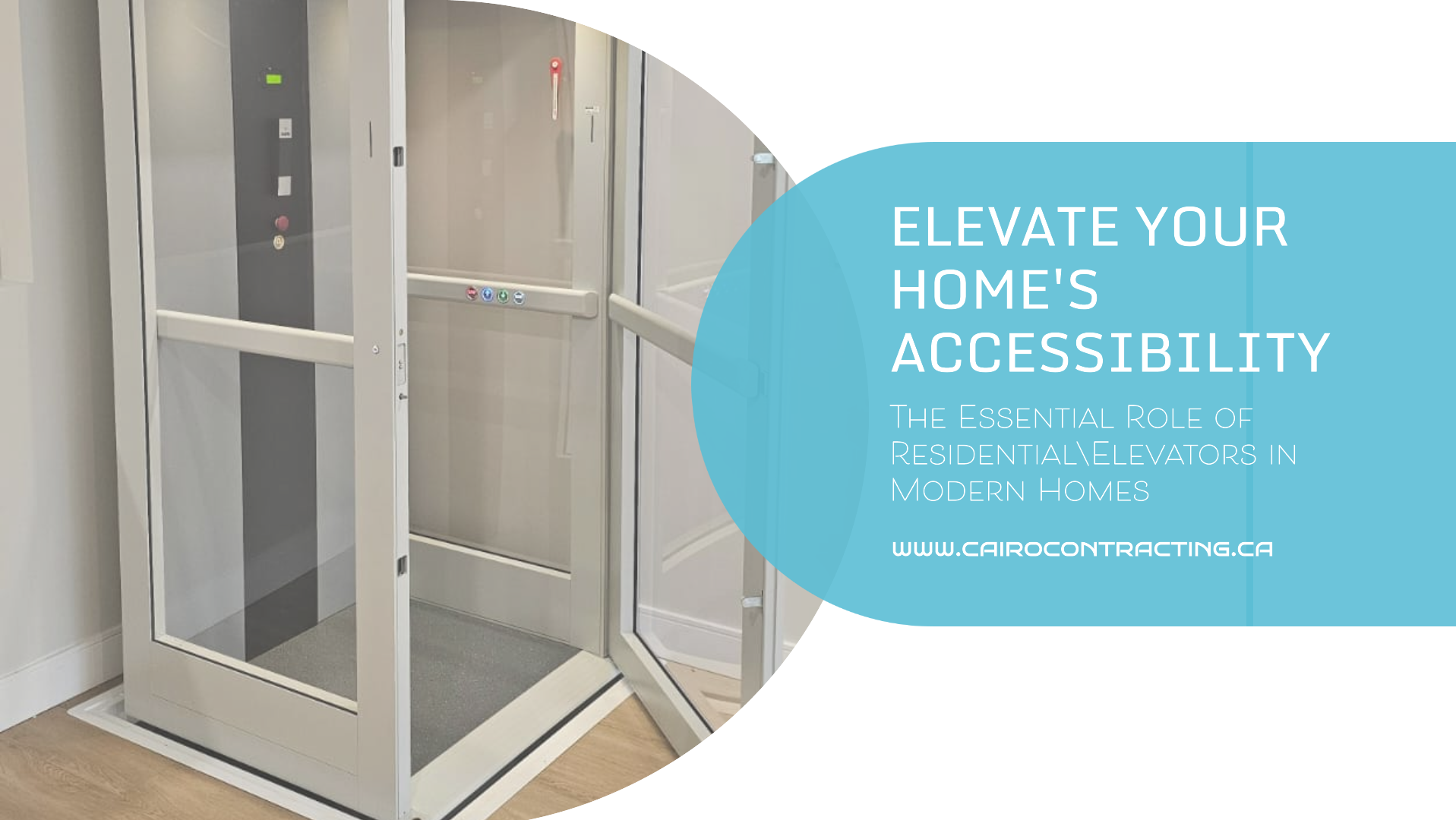As homes evolve to meet the needs of diverse families and individuals, accessibility has become a central consideration in modern residential design. One of the most transformative features enhancing accessibility in homes today is the residential elevator. Traditionally associated with luxury or multi-story commercial buildings, elevators are now becoming a practical and essential addition to many residential properties. They offer convenience, safety, and inclusivity, making homes more accessible to people with mobility challenges, elderly residents, and anyone who may struggle with stairs.

1. Improving Mobility for All
Residential elevators are invaluable for people with limited mobility. For individuals with disabilities, the elderly, or those recovering from injury, navigating multiple stories without an elevator can be difficult, if not impossible. Elevators eliminate the need to climb stairs, providing a safe and efficient alternative that enables them to move freely between floors. This accessibility is not just about convenience—it’s a matter of safety. Stairs can present a significant risk of falls, and an elevator can help mitigate this risk, offering peace of mind.
2. Aging in Place
As people age, their physical abilities often change, making it more challenging to navigate stairs. Residential elevators offer a solution that allows homeowners to “age in place” by providing easy access to all areas of the home. This means older individuals can continue to live in their homes without the need for major modifications or relocation to an assisted living facility. With elevators, they can continue using upper floors for sleeping, socializing, or other activities, maintaining independence for as long as possible.
3. Increasing Home Value and Appeal
Incorporating an elevator into a home can also increase the property’s value and appeal to a broader market. Families with young children, individuals with mobility challenges, and elderly buyers are all likely to consider elevators a valuable feature. Furthermore, the growing trend of multi-generational living, where extended families live together, further highlights the need for accessible design. A residential elevator not only makes a home more functional but also attractive to potential buyers who may need that extra level of accessibility.
4. Design Flexibility and Modern Technology
Modern residential elevators are available in a wide range of designs and configurations, meaning they can fit into various home layouts without sacrificing aesthetic appeal. These elevators can be customized to complement the style of the home, whether it’s a sleek, contemporary design or a more traditional layout. Additionally, many residential elevators come with advanced technology, including quiet motors, smooth and efficient operations, and energy-efficient systems, further enhancing their appeal as both a practical and stylish addition.
5. A Sustainable and Long-Term Investment
Installing a residential elevator is an investment in both accessibility and long-term sustainability. Unlike stairs, which can wear down over time, elevators are built to last and offer an ongoing solution for homes as the needs of their occupants evolve. Residential elevators also contribute to a home’s energy efficiency, especially with modern eco-friendly models. They provide an energy-efficient way to access all floors of a home, and some designs offer the possibility of solar power or other sustainable energy sources.
6. Universal Design and Inclusivity
Residential elevators play a critical role in supporting universal design principles, which emphasize creating spaces that are accessible to all individuals, regardless of age, size, or ability. This type of design considers the needs of people with disabilities, ensuring that spaces are usable by everyone without the need for modifications or special accommodations. Elevators embody this principle, enabling every resident to use every floor of their home equally, without barriers.
So, call us today and get your free home-assessment done for residential elevator!